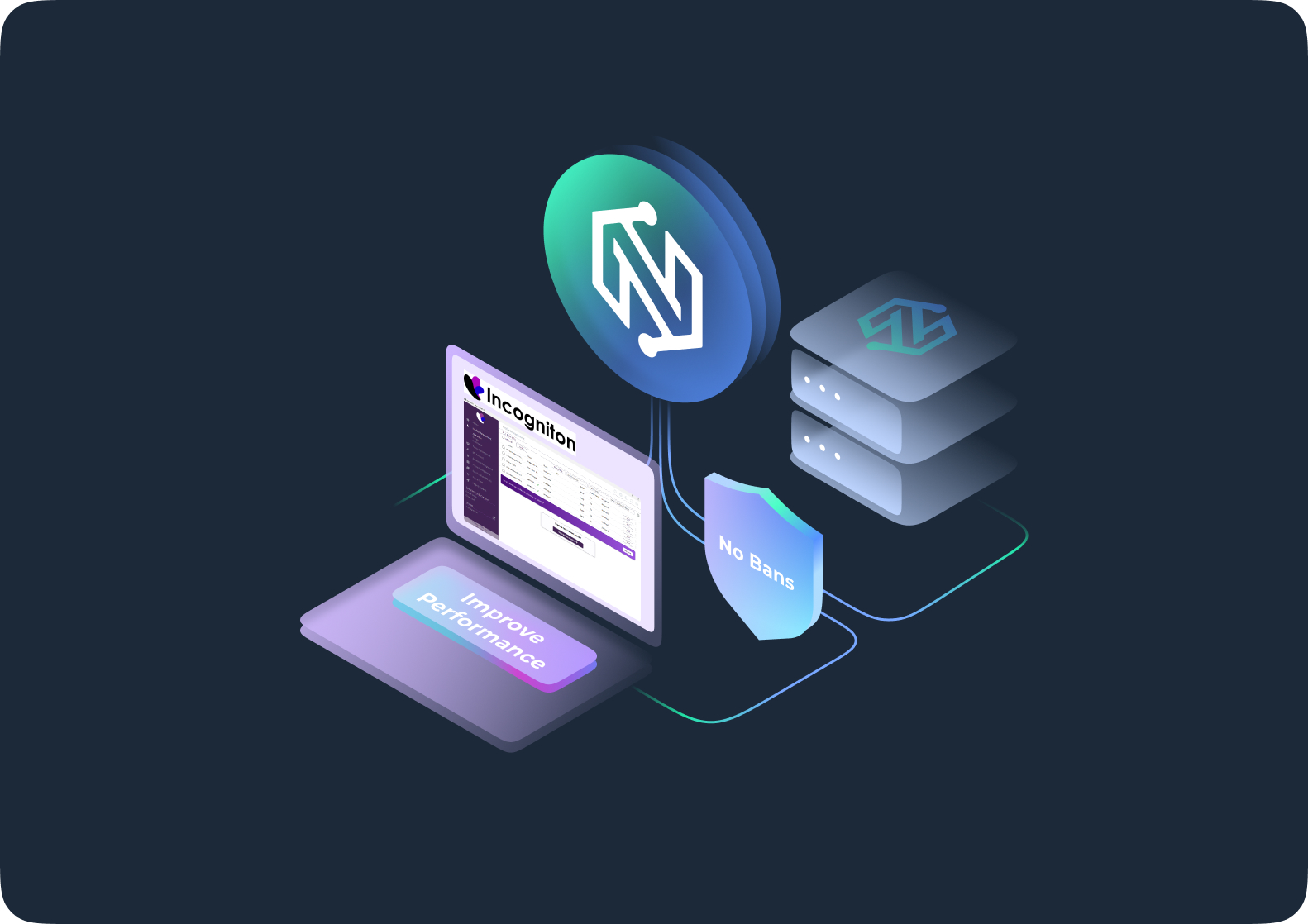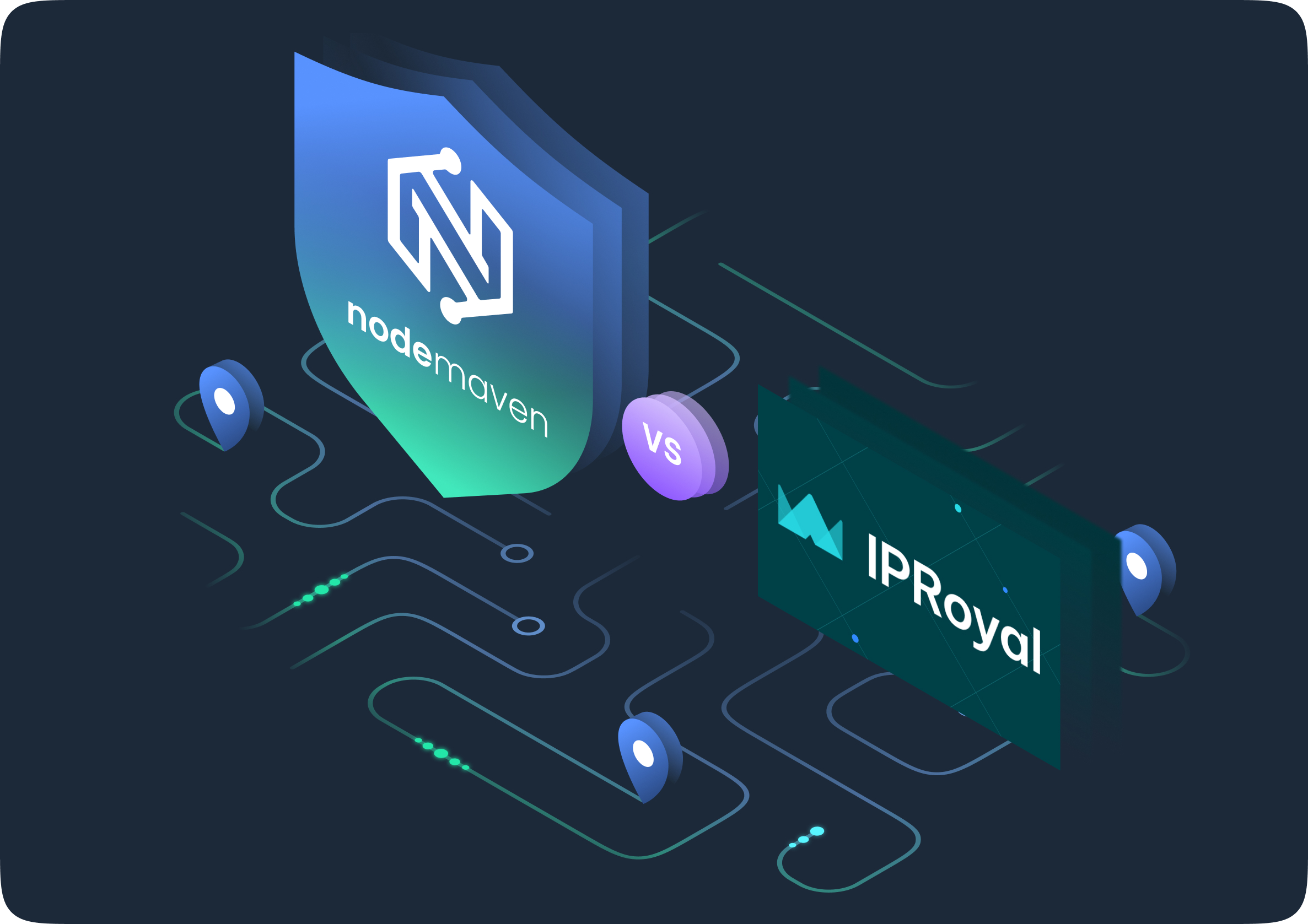In today’s data-driven world, building a reliable web scraping proxy pool has become an essential tool for businesses, researchers, and marketers looking to collect valuable insights from the internet.
Approximately 40% of e-commerce companies have improved their pricing strategy efficiency by leveraging real-time data extraction through web scraping.
However, web scraping comes with its challenges – IP bans, rate limits, and geo-restrictions can all hinder efficient data extraction.
In this guide, we’ll explore everything you need to know about web scraping proxies, including their types, benefits, and best practices for managing a proxy pool.
What Is a Web Scraping Proxy Pool?
A web scraping proxy pool is a collection of proxies used to rotate IP addresses while scraping data from websites.
Instead of relying on a single IP address, an approach that can quickly lead to bans, proxy pools distribute web requests across multiple IPs, reducing the risk of detection and granting a smooth data extraction process.
A well-maintained proxy pool offers:
- Anonymity – Prevents websites from identifying scrapers and blocking their activity.
- Scalability – Allows scrapers to make thousands (or even millions) of requests without hitting rate limits.
- Reliability – Makes sure you have continued access to websites that actively block repetitive requests from the same IP.
By using a diverse set of proxies in a structured manner, web scrapers can collect large amounts of data efficiently and without interruption.
Types of Proxies for Web Scraping
Not all proxies are created equal when it comes to web scraping. The right choice depends on the scraping goals, budget, and target websites.
Below, we explore the most commonly used proxy types for web scraping.
Residential Proxies vs. Datacenter Proxies
- Residential Proxies – These are IPs assigned by internet service providers (ISPs) to real residential users. They offer the highest level of legitimacy since they appear as regular home users.
- Datacenter Proxies – These are hosted on cloud or server-based networks and provide high-speed connections. However, they are more easily detected by websites and can be blocked quickly.
For web scraping, residential proxies are typically the better choice when scraping sensitive or heavily protected websites.
Datacenter proxies, on the other hand, work well for scraping less-protected websites where speed is a priority.
Rotating Residential Proxies for Scraping
Rotating residential proxies automatically switch IP addresses after each request or session. This is especially useful for large-scale web scraping operations where frequent IP changes help prevent detection and bans.
Best suited for:
- Scraping search engines (Google, Bing, etc.)
- Collecting product pricing and stock availability from e-commerce websites
- Aggregating reviews and user-generated content from multiple locations
Static Residential Proxies and Their Use Cases
Unlike rotating proxies, static residential proxies maintain the same IP for an extended period. This is useful when a scraper needs to maintain a consistent identity for a website session without being flagged as suspicious.
Best suited for:
- Managing multiple social media accounts
- Scraping websites that require login sessions
- Automating classified ad postings
Mobile Proxies for High Anonymity Scraping
Mobile proxies use real 3G/4G/5G connections, making them some of the hardest proxies to detect.
Many websites treat mobile traffic differently, which can make mobile proxies ideal for scraping restricted sites.
Best suited for:
- Scraping social media platforms with high security (e.g., Instagram, LinkedIn)
- Ad verification to check how mobile users see advertisements
- Accessing mobile-specific content that is unavailable to desktop users
Why You Need a Web Scraping Proxy Pool
A proxy pool is crucial for any serious web scraper. It allows you to overcome key limitations and maximize efficiency.
Avoiding IP Bans and Rate Limits
Most websites set up security systems to detect and block unusual traffic patterns. If multiple requests originate from the same IP address in a short period, the website may flag it as suspicious and block further access.
A proxy pool mitigates this by:
- Rotating IP addresses after each request or session
- Distributing requests across multiple locations and ISPs
- Mimicking real user behavior to avoid detection
Enhancing Data Collection Speed and Accuracy
A well-structured proxy pool allows for parallel requests, meaning multiple data points can be scraped simultaneously.
This speeds up the data collection process while reducing errors caused by rate limits.
For example:
- A company monitoring competitor prices can scrape product listings in real time without delays.
- A news aggregator can quickly pull in articles and updates from multiple sources.
Bypassing Geo-Restrictions for Global Data
Many websites restrict access based on geographic location. For example, streaming platforms and e-commerce websites may display different prices and content depending on the user’s country.
With a proxy pool, users can:
- Access country-specific data for market research
- Scrape localized search engine results
- Monitor global advertising campaigns from multiple regions
How to Build and Manage a Web Scraping Proxy Pool
Managing a proxy pool effectively requires strategic planning. Here’s how to secure smooth operations:
- Choose a diverse mix of proxies – Combining residential, mobile, and data center proxies can help balance speed, anonymity, and cost.
- Implement intelligent IP rotation – Avoid predictable patterns by randomly rotating IP addresses at set intervals.
- Monitor proxy health – Regularly check proxies for bans, downtime, and slow response times.
- Use session control – Some scraping tasks require sticky sessions where the same IP is maintained for a certain duration.
- Respect website policies – Avoid excessive scraping that violates a website’s terms of service. Using APIs when available is a good alternative.
By following these best practices, web scrapers can make sure they maintain a sustainable and efficient proxy pool.
Optimize Your Web Scraping Strategy with NodeMaven
NodeMaven offers industry-leading proxies specifically optimized for web scraping. Whether you need residential, mobile, or data center proxies, our solutions give high success rates and absolute data collection.
Why Choose NodeMaven for Web Scraping?
- Premium residential proxies – Access millions of IPs from real devices, keeping maximum legitimacy.
- Rotating and static IP options – Choose between dynamic rotation for anonymity or static IPs for session consistency.
- Geo-targeting capabilities – Scrape localized content with precision, targeting specific countries, cities, and ISPs.
- Scalable solutions – Whether you’re a small business or an enterprise-level scraper, our proxy plans can accommodate any volume.
- Reliable performance & 24/7 support – Maintain uninterrupted scraping with a dedicated team ready to assist you.
With the right proxy setup, web scraping becomes a powerful tool for gathering valuable insights without interruptions.
Start using NodeMaven today and experience unmatched proxy reliability!
This prevents websites from detecting and blocking your scraper, ensuring smooth and uninterrupted data extraction.
It distributes your requests across multiple IPs, helping you scrape websites safely and efficiently.
For example, one request might come from a U.S. IP, and the next from Germany — making it difficult for websites to detect scraping activity.
• Anonymity: Keeps your scraper undetectable.
• Scalability: Handles thousands of simultaneous requests.
• Reliability: Maintains consistent data access even on protected websites.
• Residential proxies are best for legitimacy.
• Datacenter proxies offer high speed.
• Mobile proxies provide top-level anonymity.
A static proxy pool keeps the same IP for longer — ideal for tasks that require a persistent identity (like logged-in scraping).
Small projects might use a few dozen proxies, while large-scale scrapers may need hundreds or even thousands to ensure high success rates.


